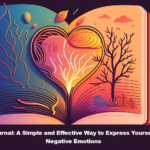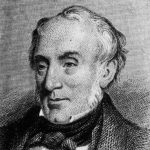Finding Your Ness – Taking a long, careful look in the mirror is the first step toward developing your personal brand. And that isn’t always the most straightforward task. You must determine what distinguishes you from others and embrace it. The cornerstone for a compelling personal brand is discovering and owning what makes you unique.
You must discover your “you-ness,” the basis of your personality that distinguishes you from others. Think about those you admire if you’re stuck or having trouble putting your “you-ness” into words. Don’t limit yourself to those who work in your field. Examine your favourite celebrities, athletes, and business leaders to see why you admire them and what motivates you to wish them well. After that, think about the questions you just answered. Find your own unique value proposition by identifying your areas of competence and enthusiasm.
Indeed, it appears that a feeling of purpose evolved in humans so that we may accomplish huge things together, which may explain why it’s linked to improved physical and mental health. In an evolutionary sense, purpose is adaptable. It aids the survival of both individuals and species.
Many people tend to feel that your unique gifts give you purpose and set you apart from others, but this is only part of the truth. It also stems from our social connections, which is why a sense of purpose crises is frequently a symptom of isolation. Once you’ve found your way, you’ll very probably run into people who are on their way to the same place you are—a community.
“Focus on your strengths, not your weaknesses.
Focus on your character, not your reputation.
Focus on your blessings, not your misfortunes.”
― Roy T.
Finding a sense of meaning in life is something that almost everyone desires. Whether we are aware of it or not. It may appear difficult to achieve, as beautiful as it sounds. If you haven’t given much thought to your personal purpose, you may have some preconceived notions about what life is all about. These ingrained notions about life are frequently influenced by our families and the community in which we grow up. Our life’s goal is to get married and start a family. Perhaps it’s making a specific amount of money or attaining a certain social status.
You are guided and sustained by your unique sense of purpose. From day to day and over time. Even when things go wrong and the world seems to be spinning out of control, having a purpose provides you stability and a sense of direction. That is why, in order to live a happy and healthy life, you must first acquire a sense of purpose.
While determining your purpose may appear to be a difficult goal, it is one worth pursuing. And I’m attempting to respond. Finding your purpose can help you achieve more happiness and success in all aspect of your life.
Read More: Believe You Can and You Will
Following are some ways to find your ness:
- Make a vision statement for yourself

A personal vision statement can aid in stress management and life balance. It also helps as a road map for achieving your goals by recognising your fundamental beliefs and determining what matters to you.
A purpose statement makes it easy to make decisions that are consistent with your values and keeps you motivated while you work toward your own objectives.
- Pay heed to Feedback
It can be difficult to realise what you are enthusiastic about at times. After all, you undoubtedly enjoy a variety of activities, and some of them may have become so engrained in your life that you are unaware of their significance.
Fortunately, you may be able to get some help from others. Without you realising it, you’re probably already demonstrating your passion and purpose to others around you.
“To share your weakness is to make yourself vulnerable; to make yourself vulnerable is to show your strength.” ― Criss Jami
You might go out to folks and inquire about what reminds them of you or what comes to mind when they think of you. You might also take note when someone compliments you or makes a comment about you. Make a list of your observations and seek for patterns.
- Surround yourself with people who are positive.
You are, as the cliché goes, the company you keep. What do you share with the folks you choose to spend time with?
Consider not seeing co-workers or family members who you feel forced to see. Consider who you choose to spend your time with outside of work and family gatherings.
The individuals you associate with reveal something about you. If you’re surrounded by people who are making a difference, you might be inspired by them.
- Focus on what you are able to do.
Developing an abundance attitude is similar to opening your eyes to life: you will be surrounded by beauty and goodness. Your life’s purpose becomes much clearer with this new viewpoint. You have less questions about how to find your purpose because you believe you have more answers and are on the right track to accomplishing significant goals.
When we concentrate on what we have, fear fades away and abundance emerges. You’ll stop worrying about squandering your life and start attracting optimism and joy instead. Rather from being a burdensome aim, discovering your meaning becomes an exhilarating experience.
- Be versatile

Letting rid of previous identities and activities that no longer serve us is one of the most difficult aspects of learning how to find your purpose. Nonetheless, it is a task that must be completed. As you grow and evolve, your life’s purpose is likely to alter as well. You must be flexible and willing to listen to your innermost desires and requirements.
“The weaker you are the louder you bark. -Tenten”
It takes a lifetime to discover your ness. Flexibility allows you to develop your integrity while remaining true to yourself. You’ll find it much easier to answer the question “What is my purpose in life?” once you’ve developed your fundamental beliefs and stopped seeking external validation.
The benefits of understanding your Ness:
Finding your purpose has been connected to living longer, according to research. Nearly 7,000 older persons were polled about the link between mortality and finding your purpose. Participants who lacked a strong sense of meaning in their lives were more than twice as likely to die young as those who had discovered their life’s purpose. A sense of purpose was also linked to a lower risk of cardiovascular events such as heart attack and stroke.
Even when income, ethnicity, gender, and education level were taken into account, the results remained consistent. Finding your purpose, according to researchers, can help you live longer. It’s also necessary for joy and fulfilment.
Read More: Givers Need To Set Limits





















